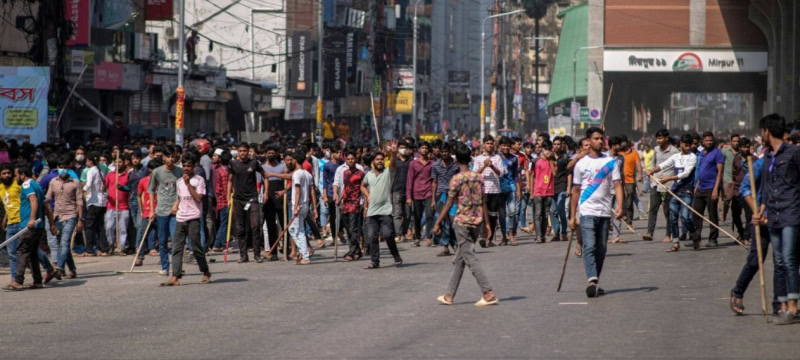Over 300 Factories Forced to Close as Tens of Thousands Protest for Fair Compensation
In a groundbreaking display of unity and determination, tens of thousands of garment workers in Bangladesh have taken to the streets, demanding fair wages and improved working conditions while striking against major global fashion brands, including Zara, H&M, and GAP. The workers, who currently receive a minimum wage of $75 per month, are now insisting on an increase to $208, a move strongly opposed by factory owners offering only $90.
Read more:Pakistan actress Sehar Shinwari to protest on streets until Babar Azam resigns
The ongoing strike, which began on November 1, 2023, has had significant repercussions throughout the Bangladeshi garment industry. As workers continue to rally in support of their just demands, over 300 factories have been forced to suspend operations, causing disruptions to production schedules and delivery timelines for the aforementioned international brands.
Bangladesh is a key player in the global fashion supply chain, with its garment industry contributing significantly to the country’s economy. However, the workers have long endured low wages, unsafe working conditions, and a lack of job security, prompting this unprecedented mass mobilization for change.
Workers on the frontlines of this struggle assert that their current wages are insufficient to cover the basic costs of living and that an increase to $208 per month is necessary for a decent standard of living. Their calls for change have resonated not only within the nation but also among international labor rights organizations and advocates.
The factory owners, on the other hand, argue that a sudden wage increase of this magnitude would be detrimental to the industry’s competitiveness and sustainability. As the negotiations between workers and factory owners remain deadlocked, the situation is becoming increasingly volatile.
This strike marks a pivotal moment in the ongoing efforts to address labor rights and wage disparities in the global fashion industry. The outcome of this protest will not only impact the livelihoods of countless Bangladeshi garment workers but also serve as a potent reminder of the importance of fair compensation and humane working conditions in a globalized world. The eyes of the international community are fixed on this critical development, and the future of the industry may very well be shaped by the resolution of this historic standoff.









